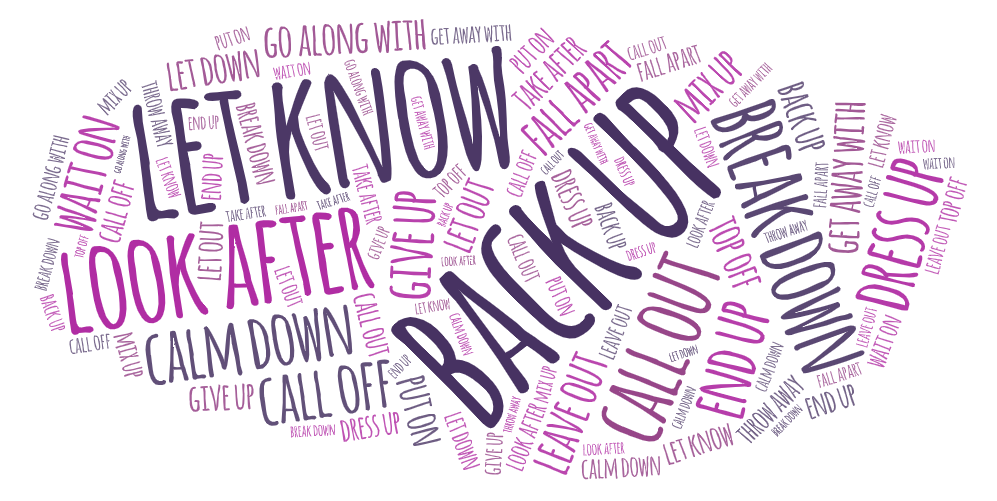Phrasal Verbs

Break down, kick out, put up, give in ...
These are what we call phrasal verbs, and they are very common in the English language. A phrasal verb is a combination of a verb and an adverb or preposition, for example ' shut up' or ' look after', which together have a particular meaning that is often different from the meaning of the original verb.
I called my mother before I arrived. (call = to telephone)
We've called off the meeting. (call off = to cancel)
Phrasal verbs can sometimes be difficult for English learners, because many of them will have more than one meaning. Take a look at the following two sentence pairs – they use the same phrasal verbs, but they have widely different meanings:
My car broke down (stopped moving).
She broke down when she told them the news (unable to control her feelings).
I will be going out tonight (leave the house for a social activity).
The fire has gone out (stopped burning).
Another challenge with phrasal verbs is their degree of formality. We often think of phrasal verbs as being rather informal and something that should be avoided in formal settings. While this is true to some extent, the reality is far more complex. Phrasal verbs can be informal, formal, or neutral – in this respect they are no different from other categories of vocabulary. But sometimes it can be difficult to know in what setting it is appropriate to use them.
Some phrasal verbs are, indeed, very informal and should be avoided in formal settings, as you will see in the two examples below:
Last night, we pigged out on Chinese food.
Don't butt in like that when I'm speaking.
Phrasal verbs are relatively uncommon in academic writing, but by no means entirely absent, and there are formal texts where a phrasal verb is the best way to express a particular idea. In the examples below, most people would prefer the first sentence:
They carried out an experiment.
They did an experiment.
The majority of phrasal verbs are best described as neutral and can be used in most settings. However, since phrasal verbs often have different meanings depending on the context, you may want to look for alternatives in texts that demand a high degree of precision.
Single-word verbs can often be more precise than phrasal verbs and therefore more appropriate for formal writing. So, whenever you write a formal text, make it a habit of always questioning the phrasal verbs you are using. Could a single-word verb be more precise? Consider the following sentences pairs. Which one would you use in a conversation? Which one would you use in a formal text?
We have picked out the best candidate.
We have selected the best candidate.
The house went up in value.
The house increased in value.
She set up a fund-raiser.
She organised a fund-raiser.
Relatert innhold
What are phrasal verbs, and when is it appropriate to use them?